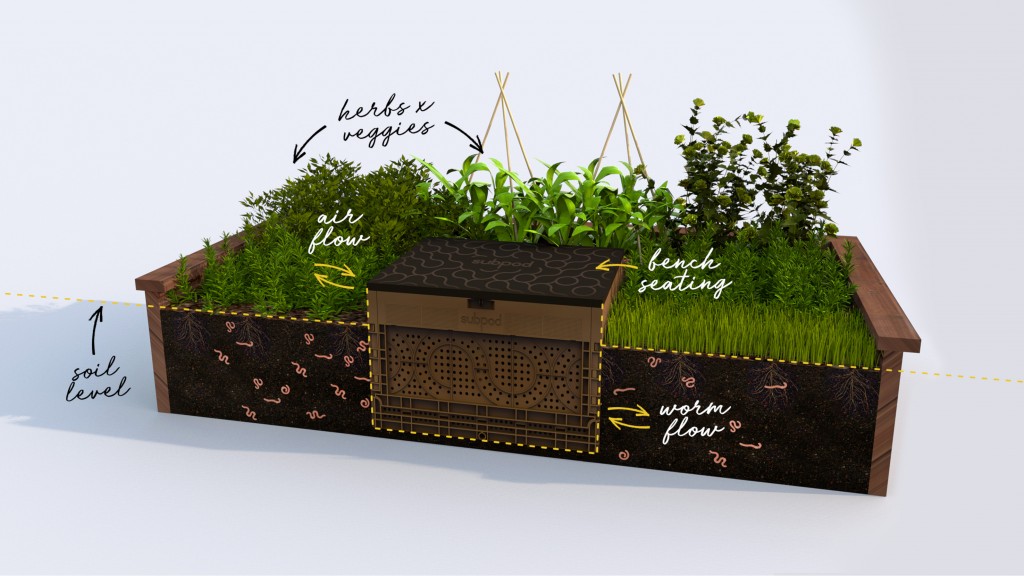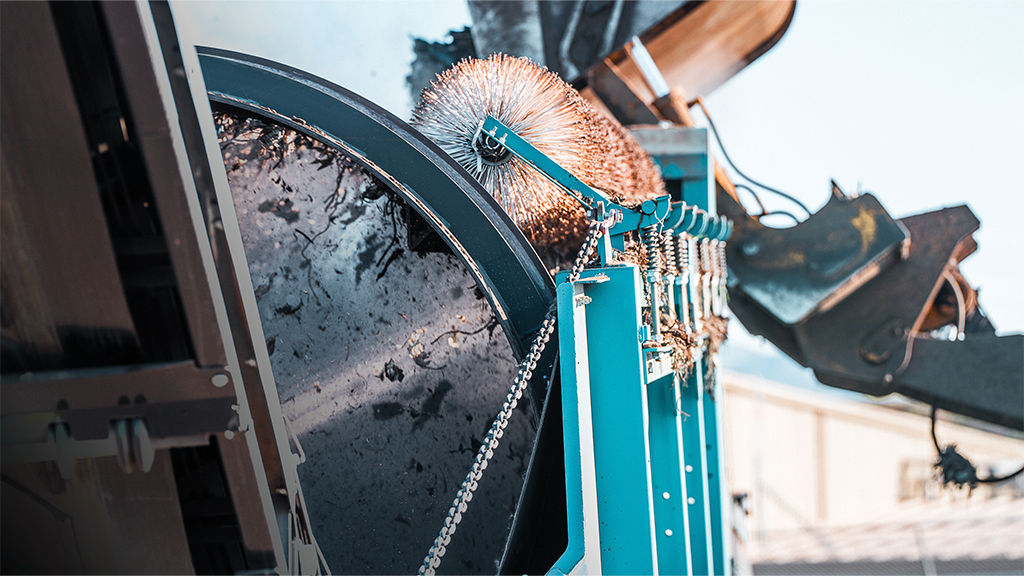
Subpod, the Australia-based company behind a new modular composting system that treats high volumes of food waste and other organic matter, have globally launched the subpod composting system. The Subpod is an in-garden composting system that is powered solely by worms and microbes. The system doubles as modern garden seating and turns food waste into nutrient-rich soil, without the hard work, mess and odours of traditional composting methods. Subpod is designed with the purpose of taking the hard work out of composting, and to make the practice more accessible to high- and lower-volume food waste producers across the globe, from families to restaurants.
The Subpod's unique design embeds the composting unit directly into the soil, allowing worms and microbes to move freely below ground, transferring key nutrients between the compost in the Subpod and the surrounding soil. Being completely odorless means it doesn't attract rats and flies, while removing 80% of the workload of traditional composting. Composting prevents food waste from being disposed of in landfill, where it rots and becomes a significant contributor to methane emissions- a potent greenhouse gas with 21 times the global warming potential of carbon dioxide.
"Subpod makes it easy to take a tiny step that can make a huge difference," said Saadi Allan, CEO of Subpod. "By simply taking the hard work out of composting and providing education and support to beginners, we are building a global community of waste warriors who are turning waste into a key resource and having fun while doing it."
Each unit has a disguised lid at the surface that doubles as a seat, and is simple to tuck into a new or existing raised garden bed, or simply dig into a ground level garden. This composting system does not discriminate- it was designed deliberately to ensure it can be scaled from a single household to larger commercial grounds.
According to Subpod, with 10 of these composters in use, it prevents 23 tonnes of CO2 equivalent emissions per year-- this is the same level of CO2 emissions from 5 cars per year. Contrary to other composting methods that are smaller and require plenty of manual labor, Subpod is compact yet has the capacity to compost half a tonne of food waste (that of an average family home) annually, as well as being scalable for large community and commercial applications.
With success in Sri Lanka, Byron Bay, Melbourne and Sydney, the team at Subpod are now on a mission to maximize their global impact by shipping units globally. So far, subpod units have found success in backyards, eco-resorts, restaurants/cafes, community gardens, indigenous communities and residential development sites. Units can be flat packed for delivery, so they are easily shipped worldwide, and assembled without tools in under 3 minutes.
Subpod will be crowdfunding on Kickstarter from November 5 for 30 days, with special pre-order pricing for those who support the campaign. There will also be a program available to pre-order a Subpod to donate to community garden projects around the world. In the spirit of truly globalizing their mission and impact by any means necessary, for every 10 units pre-sold during the campaign, one Subpod unit will be donated to a school, or community in need of composting solutions.


